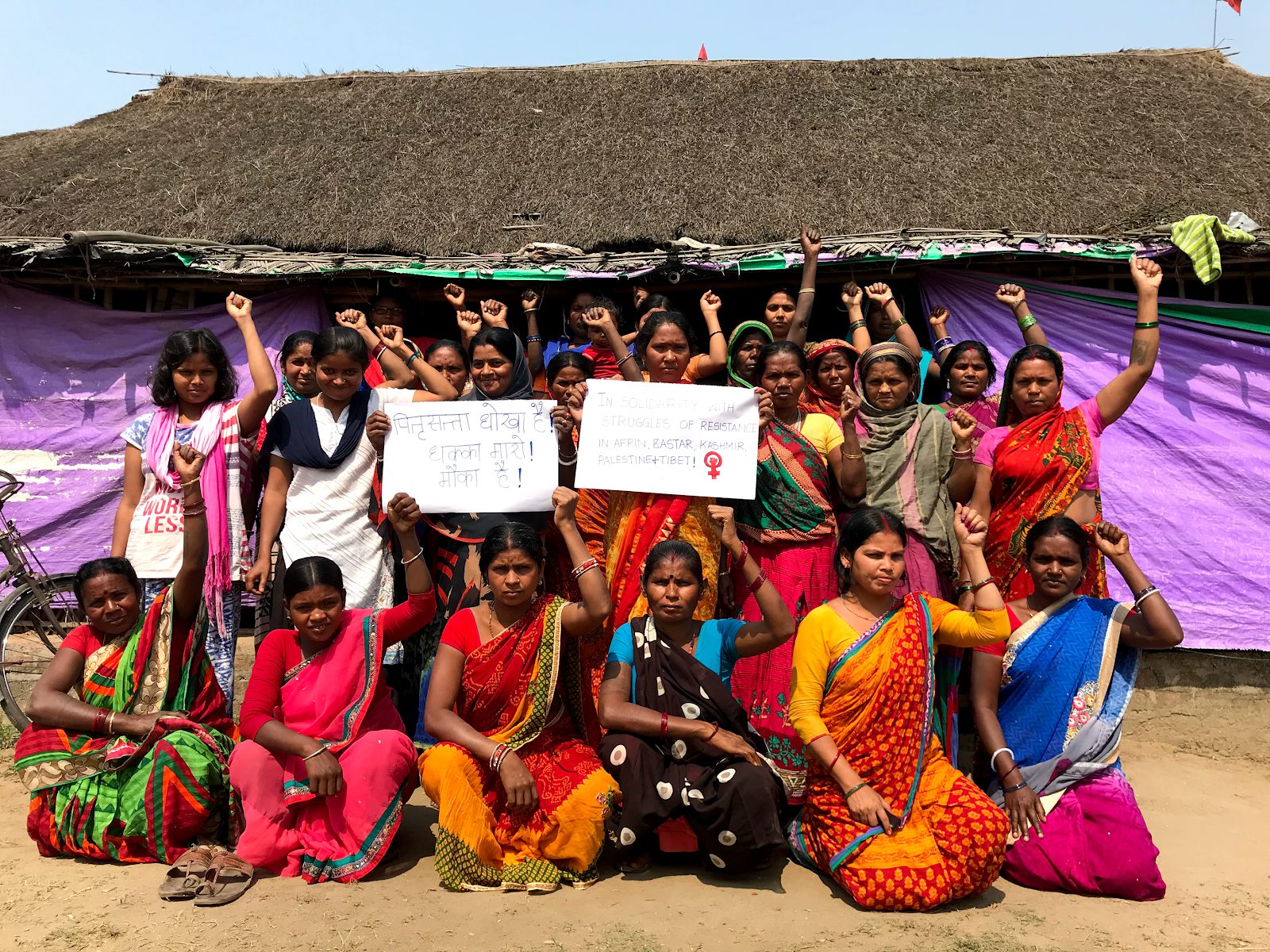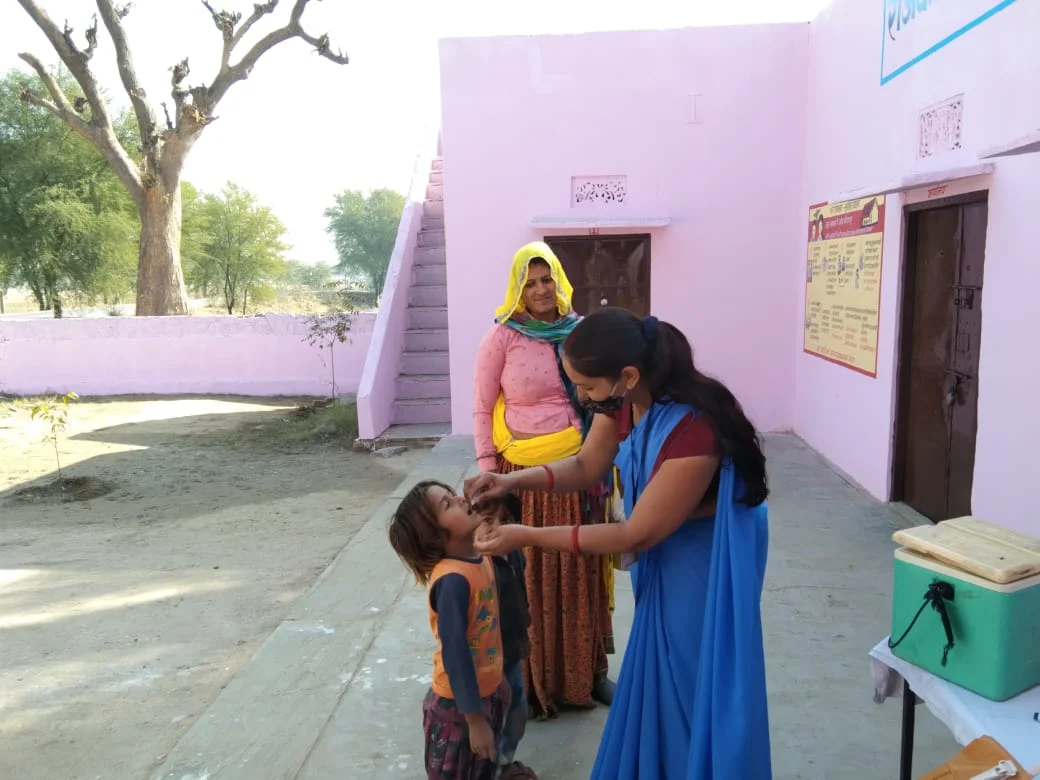Posted by Khusdeep Kaur Malhotra
In her deeply compelling study of women’s experiences, Chup, author Deepa Narayan argues that in India, a culture of invisibility is forced upon women since their very births. Such a culture – which trains women to deny their bodies and sexuality, discourages them from having a voice and an identity and simply wills them not to exist – provides a fertile breeding ground for men in positions of power to routinely abuse and silence women.
As urban and working-class Indian women reject this culture of silence and make their stories of everyday sexual harassment and abuse reverberate across the globe, some are questioning whether the #MeToo movement will ever echo across rural India.
While they may not speak its language or enjoy the privilege of social media access, I argue that women in rural India have for long participated in and even spearheaded such activism in fighting their own invisibility.
“Tod tod ke bandhanon ko dekho behne aati hain”
(Look! Our sisters have broken their chains and come)
As the dust settles on the cool compound of a school in Araria, a group of young girls and boys from Bihar, rehearse on International Women’s Day 2018 for a street play they will stage shortly for an unlikely audience
– women and men from villages in and around the district, who have gathered together to participate in a two-day workshop organised by the Jan Jagaran Shakti Sangathan (JJSS). A decade old workers’ union in north Bihar, JJSS has done the important work of mobilising Bihar’s rural poor to demand better government services and access benefits under schemes to which they are legally entitled.
For Sangathan’s female saathis, participating in these gatherings often comes with violent threats from family members
Maiko, a 16-year-old teenager tells me that she is playing the role of Clara Zetkin, the renowned German socialist who founded the women’s social-democratic movement and first proposed an International Women’s Working Day.
The backbone of Sangathan, for women like Maiko, both young and old, participating in events like Women’s Day is more than symbolic. It is their #MeToo movement.
Like urban activists who face routine online abuse and legal challenges through defamation suits, finding their voice for rural women too is fraught with peril. For Sangathan’s female saathis, participating in these gatherings often comes with violent threats from family members opposed to their involvement. Despite this, these women are undeterred.
Women’s Day 2018 celebration in Araria, Bihar. Photo credits: Mr. Utkarsh Pandey, UNDP.
Walking for hours on end in the oppressive heat, at least 30 of them gather together on the first day of the workshop, holding hands and chanting, “Pitra satta dhoka hai..dhakka maaro mauka hai” (the patriarchy is a farce, this is our opportunity to push it out), before they begin to recount story after horror story of their daily struggles against the categorical denial of their existence.
“Aaj ki mahila kaisi hai, phool nahin chingari hai”
(What defines the women of today? She is not a flower, she is a spark)
For these women, the cycle of invisibility often begins in the home, with most young girls forced to enter into marriages before the legal age of 18 years. Only 2 out of the 30 women present on the first day of the workshop say they were married after eighteen. In Araria district, according to 2015-16 National Family Health Survey (NFHS-4), 44.5% of women (aged 20-24 years at the time of the survey) report being child brides (compared to 39.1 % in Bihar and 26.8% in India). Within Bihar too, Araria ranks among the top 10 districts leading in child marriage.
Percentage of 20-24 Year Old Women Married Before
18 Years by District (NFHS-4, 2015-16)
Once married, the first denial of body and sexuality most of them experience is when sex, often unprotected, is routinely performed on them. As they talk to one another, one young woman cautions her unmarried friend, “Tumhara shaadi nahin hua hai, shaadi ke baad bahut bimari hota hai” (You are not married yet, you don’t know but one experiences many diseases after marriage). Sitting around in a circle, some women describe these experiences in painful detail. Arati tells us, “Shaadi ke baad humko foda nikla tha” (after marriage, I experienced outbreaks (in the genital area), while Savitri describes her vaginal discharge by saying “badboo aata tha” (it used to smell bad).
The #MeToo movement must recognise rural women’s own battles against their invisibility.
Next in this cycle are unplanned pregnancies, which take this denial outside the home and to the hospital. In the home, if a woman can conceive, she is a ‘hara ped’ (green tree) whereas if she cannot, she is a ‘sukha ped’ (lifeless/dead tree). In the hospital, if a woman can’t deliver right away, she is badly beaten by the hospital staff. Many in the group say that the hospital staff justifies these beatings by saying “Tumne baccha nahin diya, tumhari galati” (You haven’t borne the child, it’s your mistake). When they do deliver, some women tell us that the hospital staff holds on to newborn children until the family agrees to pay a bribe to receive their children!
“Aayegi zulm mitayegi, woh to naya zamana layegi”
(She will come, she will erase injustice, and usher in a new dawn)
Challenging these invisibilities on the ground by fostering alternative imaginaries of power in which mahila (woman) is shakti (power), these women report successfully mobilising around the sexual violence that child brides routinely encounter, fighting tirelessly within their respective communities to delay marriage and educate girls. Although it’s hard to measure the direct impact of their organising, the women report that fewer girls in the community are becoming child brides (between 2007-08 and 2015-16, the % of 20-24 year old women reporting marriage before 18 years declined by 42% in Araria).
Marriage Before 18 Years by District)
With 45.4% of ever-married women in Bihar reporting experiencing physical or sexual violence (and an overwhelming 98.6% reporting it is the husband that commits sexual violence the first time), these women realize their fight is far from over. But if one thing is clear to them, it is the power in collective organising – “Kar rahi hain behne lalkar, sajag ho jao behena” (Our sisters are challenging (the system), wake up sister)– that has amplified their voice.
Although concerns around the redressal of violence, disparate social media access and lack of language surrounding sexual violence for rural women to be a part of #MeToo are not unfounded, for it to truly become a movement for change for all women, #MeToo must recognise rural women’s own battles against their invisibility. Perhaps then it can begin to find ways in which it can cross this rural-urban divide.
Reportage for this article comes from the author’s interaction with women over a 2-day Women’s Day workshop held in Araria, Bihar, in March 2018, for which she is grateful to the women participants and organizers at Jan Jagaran Shakti Sangathan. All respondent names have been changed to protect privacy; sub-headings are lyrics of songs/slogans written by Sangathan’s women themselves. The author also wishes to thank Mr. Roshan Kishore (Hindustan Times) for comments on an earlier draft of the article.
Khushdeep Kaur Malhotra is a PhD Candidate in Geography at Temple University in Philadelphia, USA, currently completing her dissertation fieldwork in Kashmir.
Featured Image Credits: Mr. Utkarsh Pandey, UNDP
About the author(s)
Guest Writers are writers who occasionally write on FII.




